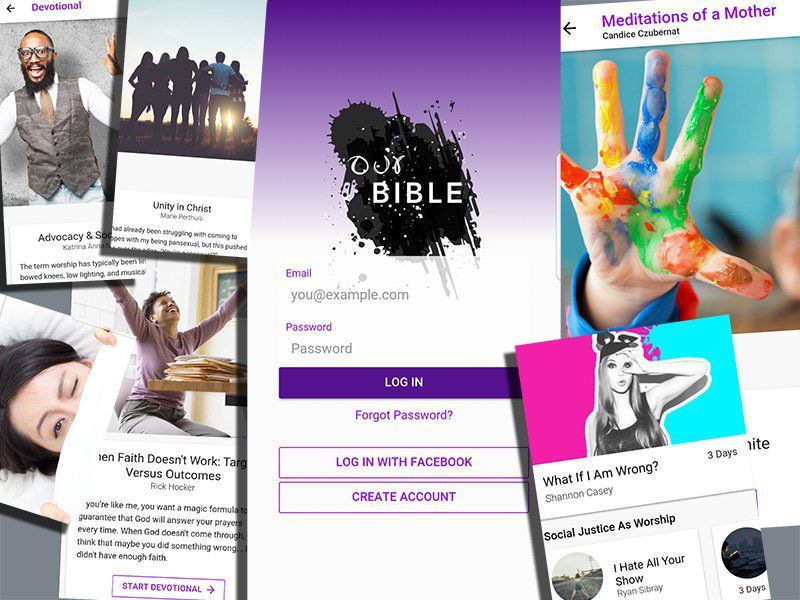New Bible app creates online community for progressive Christians

Crystal Cheatham calls it the “same old story.”
The Philadelphian grew up in a Seventh-day Adventist home and found, when she came out as a lesbian, no “room for me in that space.”
As she met people from other denominations who also felt marginalized, she discovered “a large chasm between conservative Christianity … and the Christianity I was experiencing.”
Thus was born the idea for the Our Bible app.
After three developers, 18 months, a successful Indiegogo campaign and late nights raising money as a Lyft driver, Cheatham recently released “Our Bible” – described on its website as a “meditation app for LGBTQ Christians, their friends, family and allies.”
But it’s also for people feeling marginalized by their churches for many reasons, not only sexual orientation, she said.
Three other Bible apps are in the Top 10 free apps list in Apple’s app store. Many such apps let conservative Christians “reach out in need of something spiritual or worshipful or will allow them to meditate or find community,” according to Cheatham, 32.
But, she said, no hub served Christians with doubts or differing interpretations of what the Bible says about LGBTQ relationships, race, social justice or women in the church.
The Our Bible app encourages all kinds of writers to contribute, she said.
“We have people writing about black and brown portrayals of Jesus or seeing Jesus as a metaphor on the subway,” she said.
And thanks to the diversity of the app’s contributors – “female theologians and reverends and people from really all over the globe” – she expects Our Bible to attract an equally diverse group of users, including “those who find themselves drawn to more conservative apps.”
Some have asked Cheatham if she is rewriting the Bible.
No, she said.
Our Bible features the same translations of the Bible found in other apps, such as the King James Version and New American Standard Bible. But it also features podcasts, books and devotionals in categories such as “Social Justice As Worship,” “Bible Free Meditations” and “LGBTQI Spirituality.”
Another critique of Our Bible, in a review in Apple’s app store, questions whether an app for progressive Christians exacerbates the tendency of progressive and conservative Christians to avoid listening to one another.
But reviews are overwhelmingly positive. Users note they don’t have churches in their areas where they can have such conversations or places to find similar resources. One five-star reviewer praised its devotions as “actually relevant and edifying for my life.”
Cheatham says that’s the response she got when the app was released in January during the Q Christian Fellowship Conference in Denver.
It’s gratifying, she said, to see that the app fills a need, and that she was right to follow her instinct to create it.
And she expressed deep gratitude for those who helped make the app possible: “It’s great to know there’s community out there.”








